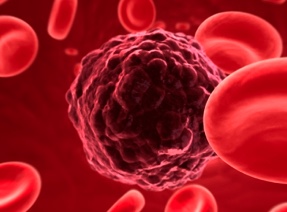
CoQ10 May Help Depression, Stress and Diabetic Neuropathy
CoQ10 is a vital enzyme used by every cell in your body for energy production. Preserving energy mechanisms in the body are important for endurance, vitality and to resist disease.
Two recent animal studies have found CoQ10 can positively effect three common problems with the nervous system.
In the first study, researchers created stress, anxiety and depression in rats. Then they were fed CoQ10 for three weeks. The researchers observed anxiety and depression improved as a result of CoQ10 feeding. Other tests showed increased antioxidant activity in the brain, reversing cellular and DNA damage. The authors concluded CoQ10 acted like a natural antidepressant.
Diabetic neuropathy is nerve damage that occurs from high blood sugar levels in diabetics. It often results in pain, burning, numbness and tingling sensations.
In the second study, mice were induced with diabetic neuropathy while 20 other normal mice were isolated for control purposes. The subject mice were treated with low doses of CoQ10. Behavioral observation was used to determine pain levels while blood tests were used to determine CoQ10 activity.
The study found long-term CoQ10 supplementation reduced diabetic neuropathy-induced pain. The researchers found the relief provided was due to CoQ10 reducing the inflammation within the nerves.
These types of findings are why CoQ10 is on our list of Advanced Supplementation for Health Promotion and Disease Prevention.
What Else We Have to Say: As we mentioned in our cholesterol article, statin drugs (Lipitor, Crestor, Zocor, etc.) used to lower cholesterol depletes the body of CoQ10. All cells in the body, especially heart cells, require CoQ10 for energy production to work properly. When statins deplete CoQ10, the heart has less energy to pump blood throughout the body. This can cause fatigue and lead to congestive heart failure! Therefore, if you take a statin, you MUST take supplemental CoQ10.
Sources:
https://www.ncbi.nlm.nih.gov/pubmed/23313551
https://www.ncbi.nlm.nih.gov/pubmed/23334664


